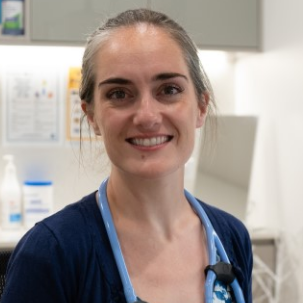Dr Stephanie Andriputri
MBBS; BA; DRANZCOG; DCH; FRACGP
Acute IllnessChild Health ServicesChronic Disease Prevention & ManagementMental HealthReproductive HealthSexual HealthTravel HealthWomen’s HealthWork Health
If you think you are at risk of having an STI, or recently were told by someone that you have had sex with those who had a STI then it’s a good time to come in and chat about your sexual health.
It’s important to know that we may ask some questions that clarify your risks, but we never pass any judgement on sexual practices. Everybody has different tastes; all we want to do is make sure you’re staying safe while having sex.
It depends on what kind of sex you’re having. We want to check for both bacterial and viral infections, and this can involve a urine sample, swabs and a blood test.
Swabs can be collected from the throat, urethra, cervix and rectum. They are also taken if there are lesions that are suspicious for genital herpes or syphilis.
Urethral swabs are required in patients with symptoms of urethritis and discharge (if the discharge isn’t directly present).
Often sexual health tests will be conducted looking for:
If you’re having issues with the skin, then a physical examination may be all that’s required to have a look and make a diagnosis. Common sexually transmitted skin conditions include:
Not every test is necessary for every person, so have a chat to your doctor to decide what should be checked and how often.
Anytime that you think you may have been exposed to an STI.
This often means having unprotected sexual intercourse, or if a recent partner has told you they have been diagnosed with an STI, or they’ve had sexual contact from someone diagnosed with an STI.
If you are sexually active, then chlamydia (and sometimes gonorrhoea) should be tested for annually or more frequently if the risk is higher.
If you fall into a higher risk category, then you may need testing more frequently.
These groups include people who.
If you think you are at higher risk, then STI testing up to 4 times a year is advised.
There is absolutely nothing to be embarrassed about when it comes to sex. Although it can be rather personal and something private, it is important to talk openly to your doctor about your concerns and sexual practices. Some typical questions we might ask you are:
And so on.
We will discuss this at the time of testing, but here are the basics.
One thing that makes people quite anxious is how do they let their sexual contacts know to get tested and treated. It should be reassuring that most people report appreciation at being informed, rather than finding out later when they develop symptoms.
Each condition has a different contact tracing period so your doctor will help guide you here.
If you absolutely cannot tell your previous partners about potential exposure, you can always use websites such as
Or let your doctor know so they can help inform your partners.
Not having sex really isn’t an acceptable option to most people, so we have to rely on the next best thing.
They do work, and they work well. However, they do need to be used properly to reduce and prevent the chance of becoming infected with an STI. It’s important to remember they still aren’t 100% and don’t protect against all STI’s, but are very effective in preventing HIV, chlamydia and gonorrhoea. Syphilis can be protected if a sore is covered by the condom, but it can still affect areas outside of this.
Asking your potential partners about any known STI’s or recent checks can be helpful, but also isn’t 100%.
For people at high risk of developing HIV, there is medicine available to prevent the chance of contracting the virus if taken every day. This is called PrEP, and you can read more about it here.

Green Square Health Embarks on the SUSTAIN Paediatric Care Trial

Dr Caitlin Weston returns to GSHealth
We’re excited to announce that Dr Caitlin Weston is returning to the Green Square Health (GSH) family in Waterloo. Having recently worked in Redfern at Citydoc, Dr Weston is committed to ensuring her patients receive uninterrupted and exemplary care. To continue your care with Dr Weston, simply complete the transfer of records form below, and […]

Important Notice: Fee Adjustment Effective July 1st

It’s Travel Season! What vaccines should I get? By Dr John-Alec Tynan